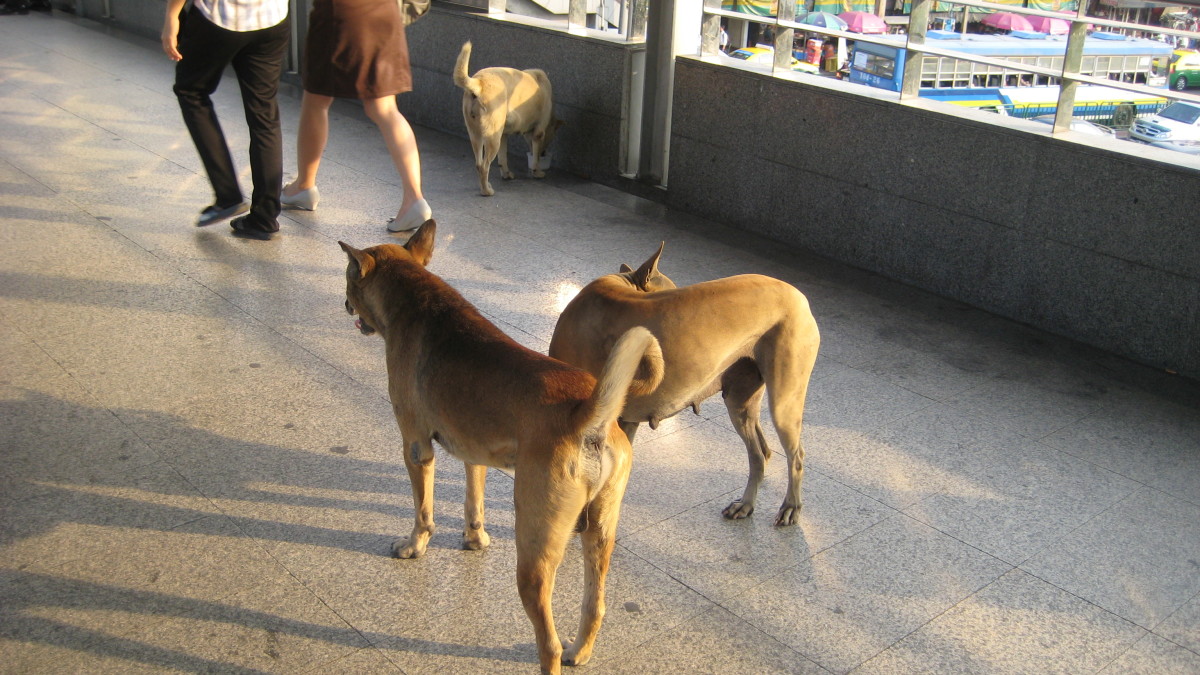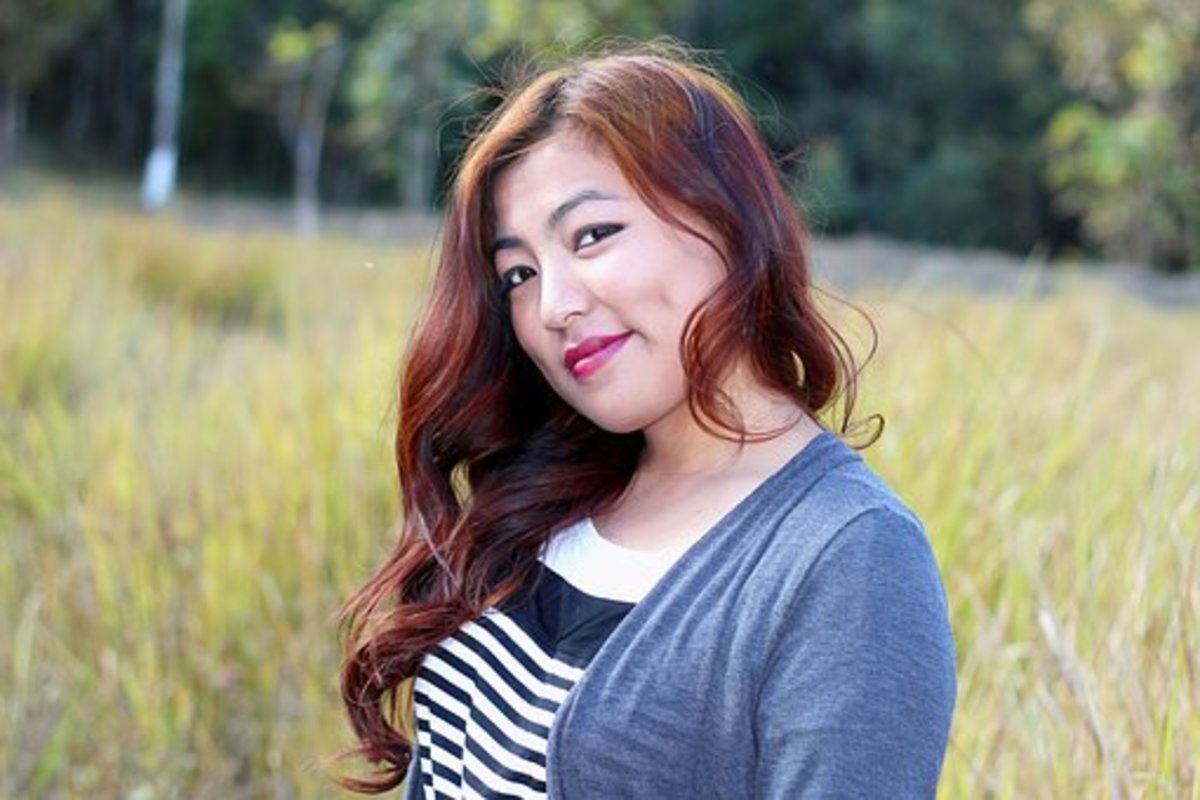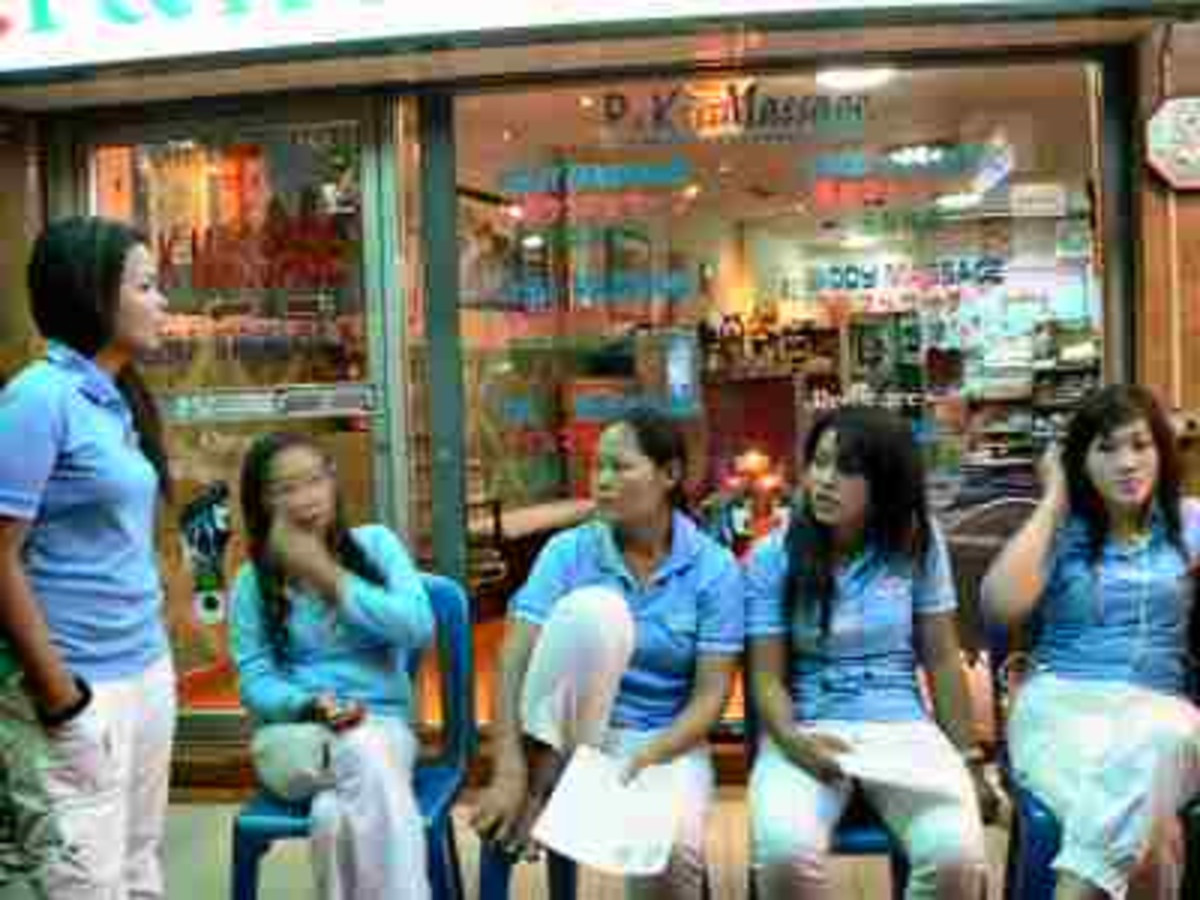- HubPages»
- Travel and Places»
- Visiting Asia»
- Southeastern Asia
Moving To Thailand. Useful Tips.
The Home We Moved to In Thailand
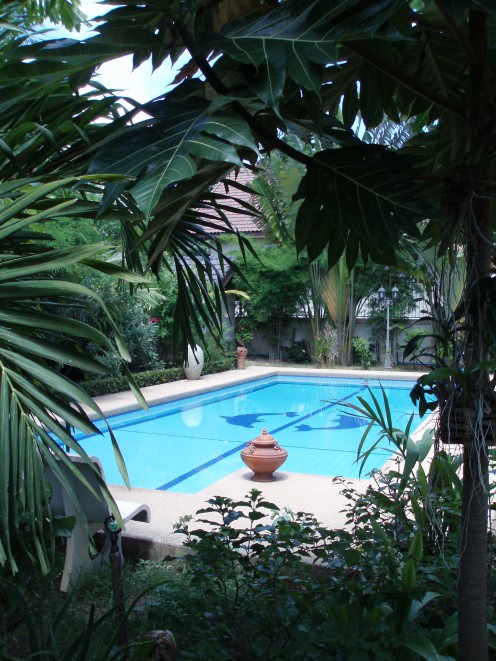
The Planning Phase.
If you’re planning to live and work, laze about or retire to a tropical country like Thailand, here are a few helpful tips that we had to discover for ourselves. We’ve lived in Thailand for three years now and are really enjoying it immensely, but it’s been a steep learning curve and one that’s not always been enjoyable. Some of the items below could well have been less stressful if we’d known about them in advance.
First, before we begin anything else, let’s assume you’re in the ‘thinking’ stage of the move.
Ask yourself a simple question, “is the tropics the place I want to live?” Seriously. You may have been to places in the Far East (or any other tropical area) for holidays, but even a long holiday is no indicator of whether you’ll cope with the climate and conditions presented over a long period of time. Maybe you would be more suited to a Mediterranean climate.
And if you’re a couple, do you both want the same thing? Are you going to get homesick? Do you have somewhere in your home country you can come back to? Can your finances afford a trip ‘home’ occasionally? What if the currency changes drastically, (as it did in late 2008, where in Thailand the required annual Immigration money required in your bank, went from £12,000 to £17,000 within a matter of weeks)!!! Do you have enough ‘fall-back’ money to see you through? Are you covered by health insurance? In most foreign countries you have to pay up front for treatment or repatriation due to illness. In Thailand this is NOT expensive and the treatment is first class.
Pensions. If you have a pension do not have it sent monthly to your Thai (or wherever you plan to move to) bank account. At least from the UK. It costs anything from £10 to £30 per transaction. Meaning transferring 2 pensions monthly could cost you £720 per annum. A sizeable sum if you’re annual income is only about £12,000! Instead, have it transferred once a year, or twice at most, in a lump some. In that way you only pay the onetransfer fee of £10 -£30.
So, the preparation stage in your own country needs a lot of thought, but once the decision has been made here are a few hints to make the transition easier. Now……………………
What to take with you?
- Removal Company. Get a good removal company and don’t pay through the nose for it. We found White’s of Winchester (Website at bottom of page) were excellent and not too expensive. We got quotes from 5 different firms and these were not only the cheapest, but the most helpful in every respect. They did everything, from sorting and packing, to ensuring the legal paperwork was okay at the Thailand end. We only paid an extra 350 THB £6.00 when our 40 foot container arrived 5 weeks later.
- Take every thing… We took nearly everything from our old home apart from valuable wooden antiques and our leather 3 piece suite (a bad mistake, we thought that as the country was a Buddhist country they’d object to animal hide furniture. But it would have been okay and of far superior quality to the items sold here).
- Bedding, linen and towels. In Thailand they’re expensive and of poor quality.
- Clothing. Remember, the Asian people are much smaller than Westerners and ladies, if you’re over 11 st. (70kg) you will have problems finding things to fit, especially underwear! Stock up on ALL your favourites, including lots of swim wear, shorts and t’shirts. Not only are the clothes too small, they’re of very poor quality and often sold at Western prices. Outlet shops? Forget it – rubbish of the worst kind. Good labels……….. but if you’re living here, who cares about designer labels!!
- Tools and Equipment. Guys, if you love a bit of DIY and can’t survive without it, take all of your tools. The tools here are of poor quality and don’t last. (NOT all, but enough to be frustrating when you’re working). And when you get them here, clean and grease everything. The humidity and the long monsoon season combine to ensure anything metal goes rusty PDQ!!! And all of your wood gear – cover it in wood oil or anti-pest sprays. Western wood is delicious to the numerous pests in the tropics and we do NOT want you replacing them with hardwoods do we!!
Okay, so you’ve got here and are settling in. What next?
Beautiful Thailand
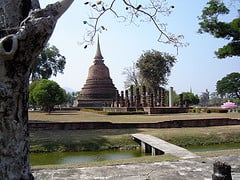
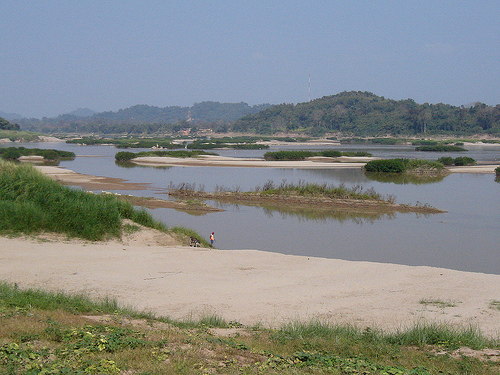
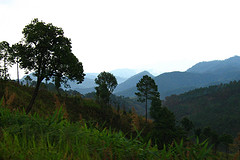
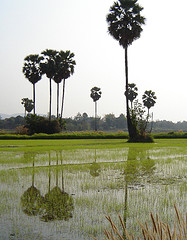
The Do's
- Acclimatize! Get used to your new climate and enjoy it.
- Take a shower frequently.
- Swim.
- Walk.
- Swimming pool. Good for health, body and mind.
- DRINK TONS OF WATER!
- NOT BEER,
- NOT FRUIT
JUICE,
- NOT ALCOHOL; -
- JUST PLAIN WATER with LIMES!
- Invest in a water dispenser, the water is always there and is cool, but not icy.
- Register with the local hospital, and they will issue you with a Hospital Card which will bring up all your information on the hospital computer each time you visit. Always carry it with you. In that way you don’t have to worry if you have an accident or get sick.
- Check with a local Doctor for minor problems. Most of them can speak English, but it won’t hurt you to learn a few basic medical terms like ‘sore throat’, swollen ……….., infected mosquito bite, etc etc
- Viagra etc, – good for chaps with problems, but………….
- Always carry a copy of your passport and all the relevant pages in case of an accident or being stopped by the police.
- House security. Pay the local police and they will ensure you have a regular visit which is enough to keep the local ‘bandits’ away. ‘Tea Money’ is around 500 baht a month. They’ll record in your book the date and times they visit. Make friends with your local constabulary – it pays!
- Strong bolts and good padlocks ensure your house is safer.
- Window grills – strong and a good deterrent. Very decorative ones too.
- Security lights.
- A simple alarm system close to the points of entry. Battery operated is quite sufficient.
- Perimeter garden lights – leave on all night.
- Dogs. The Thais do NOT in general like dogs and are terrified of house dogs that bark. So get a Thai Mut and encourage him to bark if someone comes to the gate or door. It’s just as effective.
- Leave them outside; they’ll soon tell you if anyone’s around at night and will discourage unwanted visitors.
- They’re good company too and if you walk them regularly are particularly good for YOUR health.
- Get a Thai driving license. The first one is for a year. The second is for 5 years. When applying have your International Driving License with you. That way you don’t have to take more than a perfunctory test at the Driving License Centre.
- With the production of your Thai driving license, you can access most of the tourist attractions in the country. If you have many visitors each year this could save you a considerable sum when accompanying them on outings.
- Barter, barter, barter! Most places you can barter for goods, it’s expected and the Thai’s enjoy it. Start off with half the price they offer, then you can go up and they can come down! Compromise is the name of the game and they think you’re a bit of a prat if you don’t haggle!
- Eating out is almost cheaper than cooking at home. Don’t forget – when home cooking, electricity is VERY Expensive here, so work out the cheapest and what suits you.
- Buy your food in the local markets. The further you are from a town, the lower the prices. The stall holders soon get to know you and enjoy a good chat. For food, don’t barter. You’re getting a good bargain with all that fresh produce and it is FRESH. Most food is grown locally and taken to market each day. They don’t keep it in freezers for months, they can’t afford to.
- Go to market early if you’re buying meat or fish. And the choice of fruit and vegetables in much better too.
- Take a big cool-box with you with plenty of ice packs.
- Buy just enough food, especially fruit, for the next couple of days. Most places have markets every day of the week in some area or other.
- Treasure the tradesmen that are honest! You have to use your instincts a bit on this one.
- DIY If you enjoy doing your own repairs and work, then do it. But it does good for the local people to be involved with you. You earn a lot of respect and kudos if they think you know what you’re doing.
- The people here are poor, so give them work when you can. Housework a couple of times a week on a regular basis. Ironing too.
- Help with the garden on a regular or impromptu basis lets people know you’re interested in gardening and quite capable of doing a lot yourself. More respect and kudos.
- Learn the language. No matter where you are, people have enormous respect for foreigners that try to speak their language – it shows on their faces!! Don’t worry about making mistakes, just get in there and talk, talk, talk. They’ll soon put you right on pronunciation and sentence order, and you can do the same for them. They invariably want to speak a bit of English and once over the same shyness that beset you, they’ll really enjoy it.
- Get involved in the local community.
- Do a
bit of voluntary English language teaching. but..........
- Voluntary work without a Work Permit may cause problems with the Immigration Dept, so a TEFL certificate will ‘make you legal’. You can do this in your own country as it’s the same price world-wide. It takes about 3 months to complete. Or you can do it here, there are many TEFL courses run in Thailand.
- Internet connections. Can be done via your mobile phone. Check out the best deals.
- Eating. Try all the local culinary delights; you’ll be surprised how delicious they are. Try all of your local small restaurants; you’ll be amazed just how cheap they can be. We dine really well on approximately 150 baht per person per day.
- Your Garden: if you plan to have a garden and you’re anything like me, it was a massive learning curve. My horticultural expertise didn’t apply here! It’s a whole new ball game. Experiment and try is all I can suggest. It’s so enjoyable too! and you can share the experience with the local neighbours, they love giving advice! (same the world over eh!)
- Remember, the sun is very hot and most plants don’t like direct sunlight for even part of the day. Orchids in particular.
- Have you got a swimming pool? Then plant some large shade trees like Delonix regae or Breadfruit.
- Research again to find your favourites.
- Plant a few bamboos anywhere else in the garden, they’re good shade providers when taller and easily pruned. They don’t sell the spreading variety here just the clump forming sort, which is brilliant. I have nightmarish memories of our pond in England and the small bamboo that spread into it after a couple of years!!!
- Get your local odd-job-man to help you if you have a big garden. Its great fun to do but can be exhausting. Compromise!
- Ponds: really lovely features but make sure it’s big enough. The wildlife they encourage is wonderful, especially the birds, toads and frogs. Stocks with fish – gold fish are perfectly adequate. And put some Guppies in. They’re marvellous for getting rid of mosquito larvae and breed prolifically. They produce live young and provided you have plenty of plants will quickly stock your pond for you themselves.
- Rescue some turtles from the local market and put in the pond. Provide plenty of access for them to get in and out though.
- Research your plants. Bulrushes are too big for a small pond, as are many of the native plants.
- Plan the pond near a shady area.
- Put some seating around the pond so that you can enjoy it to the max.
- Provide plenty of seating around your garden, its wonderful to sit and relax in different areas with different aspects.
- Bringing
your pets to Thailand. I’ve
written a hub on this subject, have a look at it....
- Furniture: I would strongly suggest you bring everything from where you come from. Even if it means going to the local auction houses to stock up.
- Treat all of your wood with wood oils to protect them from all the diseases and insects that abound in the tropics. Just paint it on with a brush.
- Finally: a bit of pampering. Go to the masseur at least once a week! This is the most healthy relaxation I know and stimulates the blood and lymphatic circulation to rid your body of toxic wastes.
- Go to the hairdressers once a month and not only have your hair coiffed but a manicure and pedicure as well.
- You’ll feel marvelous and it’s so affordable here!
The Don’ts / Bad
- Don’t sit about in an air-con’d room!! That’s a sure recipe for illness and never quite coping with the outside temperature. What did you come to the tropics if you can’t stand the heat???
- Drink. In this climate you can lose up to 3 pints of fluid an hour!! YES, 3 PINTS! Dehydration is a killer! Do not underestimate that fact! A lack of water can cause all sorts of illnesses and is especially damaging to the kidneys and hence the heart.
- Hospital Card: Scare stories of people not being treated after an accident I think are not strictly true. But it will take longer to establish your financial status if your unconscious or have no-one with you.
- Viagra et al. Do NOT take them if you’re on any cardiac drugs. Check with your ‘home’ Doc before you go. And they do have side effects like bad headaches. And they are NOT cheap!
- Being stopped by the police is a regular occurrence in Thailand. It’s not worth the hassle of going to the police station. What they want is ‘tea money’ and 100 baht is more than sufficient. Leave a 100 baht note in your license. Learn to live with it. These guys are poorly paid anyway and have to buy all their own equipment.
- Burglaries. In big towns a problem, in the countryside not so much of a problem, but be WARY.
- Wooden doors and locks are inadequate.
- Do Not put security grills on the outside of the windows. Thieves can easily remove them
- Don’t leave your home in the dark. It gets dark around 6 to 7 pm in this part of the world all year round, so you need to light up for 12 hours a day. Can be expensive if you have costly garden lighting. Go for something simple but effective.
- Do NOT be tempted by your friends to purchase and American Pit Bull terrier!! They are dangerous and unpredictable, AND unnecessary.
- The Thai driving license takes hours to process, so be prepared for a long wait. Ensure you take a queuing ticket. You’ll need several copies of your documents, including one residence document you must get from the Immigration office. Lots of passport sized photos too. The girls in the photo office across the road at the Pattaya office are really helpful with this.
- No need for a vehicle if you live in a town or city. Seong Thaws are cheap and easy, so are taxi-bikes and taxis. Negotiate the price first though and stick to it.
- Bartering. Don’t get cross if they won’t budge on your lowest price. Just walk away or barter. The only person that gets upset over things like this is you. Smile and chat! How much would you pay for the same item at ‘home’. Get things in perspective.
- Eating Out. Not if you go to Western restaurants though! Going for a treat occasionally is really good though!
- Markets: Later in the day the choice of any food items is far less, and its been out all day…………..
- Fresh fruit and veggies go off quickly so buy just enough for a few days.
- No need to stock up here! You’ll never starve!
- Be wary of tradesmen, even the ones you know. Too often you get ripped off on jobs that should be simple. Check out with other tradesmen their prices.
- Do NOT buy things from vendors that come to your door. If you want something, you’ll go and buy it anyway without them selling inferior quality goods to you at exorbitant prices!! And NOTE, they may be sussing out your property, security and dogs.
- Sadly, throughout the world, there is a misconception in poorer countries that Westerners have been born rich and have never worked. Of course, this is not true, but how can you convince people that see how much you have just by looking at the outside of your home.
- Lesson in the Thai language can be costly. Just find some locals and practice.
- Fine tune your grammar with language classes once you start to get the hang of it all. That will be in about 5 or so years. It can’t be rushed!!!!
- If you decide to teach formally and want a Work Permit you will need a TEFL (Teaching English as a Foreign Language) certificate, a Degree and be under 60 years of age.
- Over 60 and you will not be granted a ‘Teachers License’ (this applies to Thai nationals too). Without a teachers license you will not get a Work Permit
- The TEFL course is around £500, so not cheap!
- The Telecommunications of Thailand (TOT) is an unreliable and an expensive provider of satellite connections. Frequently has no signal, especially in the monsoon season.
- Food and Diet. Don’t just eat Western food. Your health will be better for a change of diet.
- Pools get very hot without shade, and then you won’t feel like using it. What a waste!
- Don’t plant palms, they’re single stemmed mostly so don’t provide the required spread for shade.
- Don’t likewise plant Coconut palms. Dangerous when the fruit are ripe! Who wants to be hit on the head by a falling coconut?!!
- DO NOT plant bamboos close to a pool. They shed leaves with monotonous regularity and you’ll be forever skimming and emptying the filter.
- Pruning: You’ll need to be a good pruner! Everything grows at a phenomenal rate in the tropics. Leave it a month and you’ll have a JUNGLE!!!!!
- Ponds encourage wildlife but that includes snakes! Beware!!! And they’ll eat all your frogs and toads too.
- Direct sunlight will damage the plants and animals in it.
- Do NOT buy locally made things unless its good solid reclaimed wood. Think – Rain Forests and Decimation! Remember, in Thailand they may not cut their own hardwoods down any more, they just import the timber from neighboring Laos, Cambodia, Vietnam and Burma!!!! So do not be tempted unless you know the source.
- Some masseurs are really bad, so scout around and find a good one.
- My husband suffers with severe arthritis and has been so much more active for the 3 years of good massaging he’s received here.
- We were lucky enough to find an excellent masseur who I would say was as good as his physiotherapist back home! Her detailed knowledge of anatomy and physiology is unequaled!
Happy Days!!
And that’s all for the moment. I hope you find this useful. I shall doubtless be adding to it as I think of things I’ve forgotten. But do contact me through HubPages if you need more advice. I’m happy to help and wish I’d had a list when moving here.
Happy Days!!




